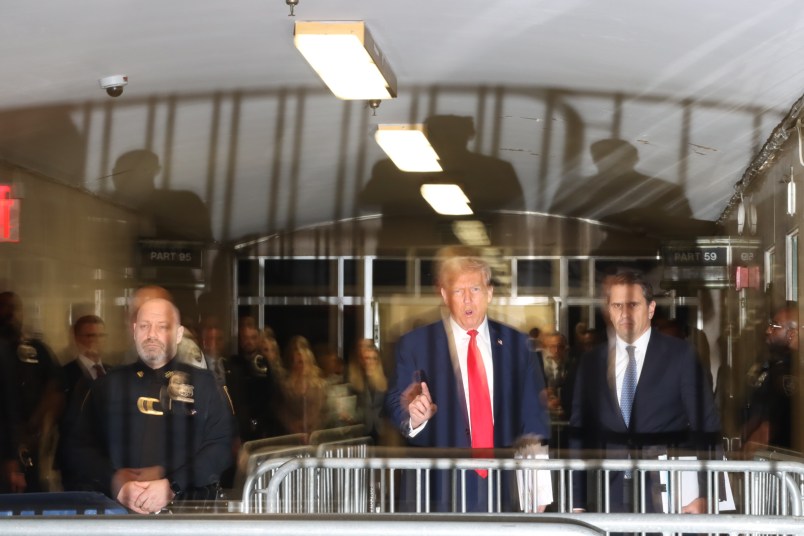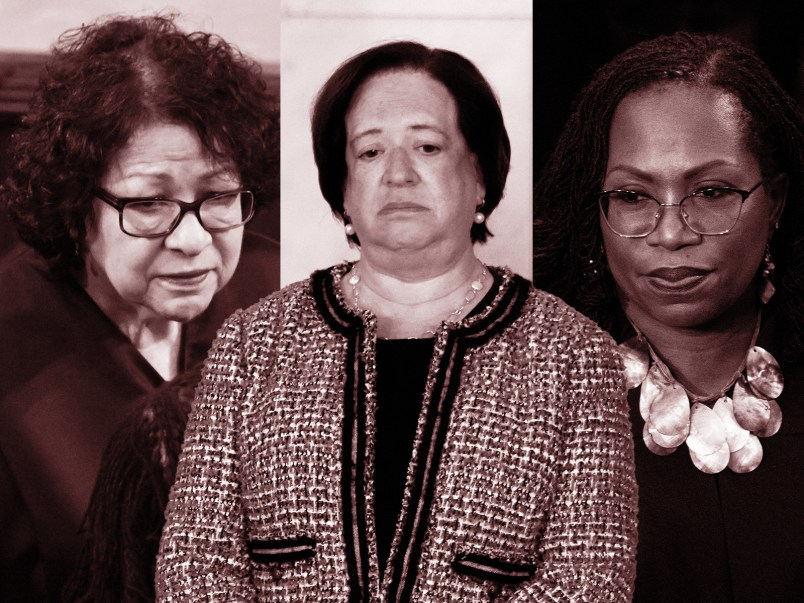BROOKLYN, NEW YORK — U.S. District Judge Raymond Dearie for the Eastern District of New York injected some normalcy into former President Trump’s civil case against the Justice Department during a Tuesday court hearing.
Dearie chastised attorneys for Trump during the hearing, held in federal court in Brooklyn, for refusing to produce any evidence that the records seized by the FBI from Mar-a-Lago in August had been declassified.
Jim Trusty, a Trump attorney, told Dearie that he wanted to examine the records taken by the government as he decided whether to make that assertion.
“You can’t have your cake an eat it too,” Dearie replied.
Dearie exhibited skepticism of the Trump team’s classification arguments elsewhere in the hearing. He kept asking Trump’s team versions of the same question: “If I’m going to verify the classification, what am I looking for?”
He added that his only option was to accept “prima facie evidence” of classification from the government.
“That’s the end of it,” Dearie added.
Trusty suggested that Dearie should not rely on “he-said-she-said prima facie evidence,” and objected to the notion that Trump should have to claim that the records were declassified, instead demanding repeatedly to “inspect” the records taken by the FBI.
Trusty added that he couldn’t fully claim that the records needed to be returned without inspecting them.
“You did bring the lawsuit and make that claim,” Dearie said at one point.
The hearing came days after U.S. District Judge Aileen Cannon for the Southern District of Florida denied a request from the DOJ to suspend part of her order. The DOJ had asked that it be allowed to keep investigating the contents of the classified-marked records that were seized at Mar-a-Lago.
It’s still unclear if all the records that Trump took from the government have been reclaimed by the government, and what exactly it was he was hiding.
Protestors, one with a sign that read “nuclear secrets,” gathered outside the courthouse. Inside the courtroom, former Mueller prosecutor Andrew Weissmann was in attendance, as was a man reading a copy of “Molotov Remembers,” a reminiscence of the Stalin-era Soviet foreign minister.
Julie Edelstein, deputy chief of the DOJ’s counterintelligence section, told Dearie at one point that some of the records seized were so sensitive that “even members of the investigating team have not been provided clearances” to view them.
Dearie had remarked earlier in the hearing that classification is provided on a “need-to-know” basis — “if you need to know, you will know,” he said.
Edelstein referenced that comment, saying that the government’s position is that classification is an “executive branch determination only” while reiterating the “need-to-know basis” for classified info.
At times, it felt like Trusty wanted to convey that Trump was still, somehow, in office.
Trusty replied that it was “astounding to hear the government say the President’s attorney doesn’t need to know.”
“I didn’t hear her say that,” Dearie replied.
“We have a need to know,” Trusty retorted.
Cannon ordered Dearie to address questions of classified material first, though the government said that it would be willing to explore “other appellate options” if the Eleventh Circuit declines to grant a stay of Judge Cannon’s order as it applies to classified records.
At one point, Trusty attempted to dissuade Dearie from implementing a point in Cannon’s order that allows him to consult with the National Archives. Calling it a “highly politicized” organization, Trusty claimed that it had affixed a trigger warning label to the Constitution, among other things.
Dearie himself remarked at the opening that Cannon had ordered him to assess a motion from Trump for the return of seized property — that, he said, “has not yet been made.”
“I follow directions, I do what I’m told,” Dearie added.










